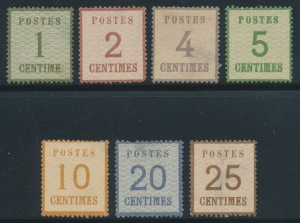Great thematic stamp collections help the viewer understand history in new ways. Recently, a collection came our way that underscores this. The collector, a historian, had a thesis that modern history is viewed through too narrow a lens. He took a long view of European history. The Hundred Years' War, for instance, was never called that by the five generations of men and women who fought and suffered through them. They saw the conflict, fought between 1337 and 1453, as a series of related struggles, but the significance of what this series of conflicts accomplished was not apparent until centuries later.
Our historian philatelist took the long view towards his thematic collection: "The War for European Unity." He has seen modern history as the growth of independent nation states and the gradual unification of the traditional independent state through economic cooperation and trade which has rendered traditional borders and security issues obsolete. He doesn't believe we have had a long enough time frame to determine what the real outcome of recent events will be, but the evidence to him is compelling. Beginning in the late nineteenth century, Germany and Italy changed from a group of independent states to loosely confederated countries to fiercely nationalistic single nations. A series of wars were fought from the Franco-Prussian War of 1870 through WWI and WWII. The obvious result was the devastation of Germany, the aggressor. And yet, as German economic growth outpaced the world in the last seventy years, they won the peace. Unification of Europe, through economic cooperation, has achieved what war could not.
It's an interesting thesis, hard to prove or disprove, but it is interesting to illustrate philatelically. The collector began with the Alsatian occupation stamps of the Franco-Prussian war and ended with the latest Euro denominated stamps of Germany (a unified currency being the greatest proof of where sovereignty lies).

